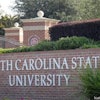African-centered theories and initiatives are often associated with
individuals whose perspectives have not been embraced by traditionally
White institutions (TWIs) — like Dr. Molefe K. Asante, who speaks of
“placing African ideals at the center of any analysis that involves
African culture and behavior;” and Dr. Leonard Jefferies, who divides
humanity into the warlike “Ice People” and the generous, communal “Sun
People.” As a result, many ascribers have been relegated to centers for
Black culture, offices of African American affairs, and departments of
African American studies.
However, Dr. Wilson Moses, in The Deep Roots of Afrocentrism, notes
that the Afrocentric movement is no longer reserved for the social
scientist: “Afrocentrism today is a charismatic, not an intellectual
movement…. Afrocentrism is among the masses of Black people and it’s
very deeply rooted in their consciousness.”
And, in fact, people of African descent have incorporated
Afrocentric trappings into their daily lives. Black expos, the rebirth
of braids, wearing Kente cloth and other African attire, vacations to
the Motherland, rites of passage ceremonies, and celebrating Kwanzaa
have become accepted parts of the Black experience. So it should be no
surprise that parents and students, as consumers, expect to see their
culture recognized and to hear their concerns addressed by college
campuses.
To address those expectations, some institutions have responded by
openly acknowledging past injustices and marketing special programs and
events — like Black Parents’ Associations, special engineering or math
programs, and Black recruitment weekends, among other things — as part
of the college search process. And several institutions that have had
success enrolling Black students have learned that attracting a
multiracial population with a monocultural approach is incongruent.
These TWIs have benefitted from coupling the traditional strategies
that focus on White students with practices that are specific to Black
students. They have come to realize that not only are African American
parents interested in the institution’s academic reputation, but they
are also concerned with its reputation specific to African Americans.
So although the word does not roll from the lips of admission officers
and administrators at TWIs, some are effectively engaging in
recruitment and retention practices that are indeed Afrocentric.
In a recent study, I found that there are similarities in the
methods used by a number of these institutions. While specific
activities vary, both selective and open admission institutions
experienced success when:















